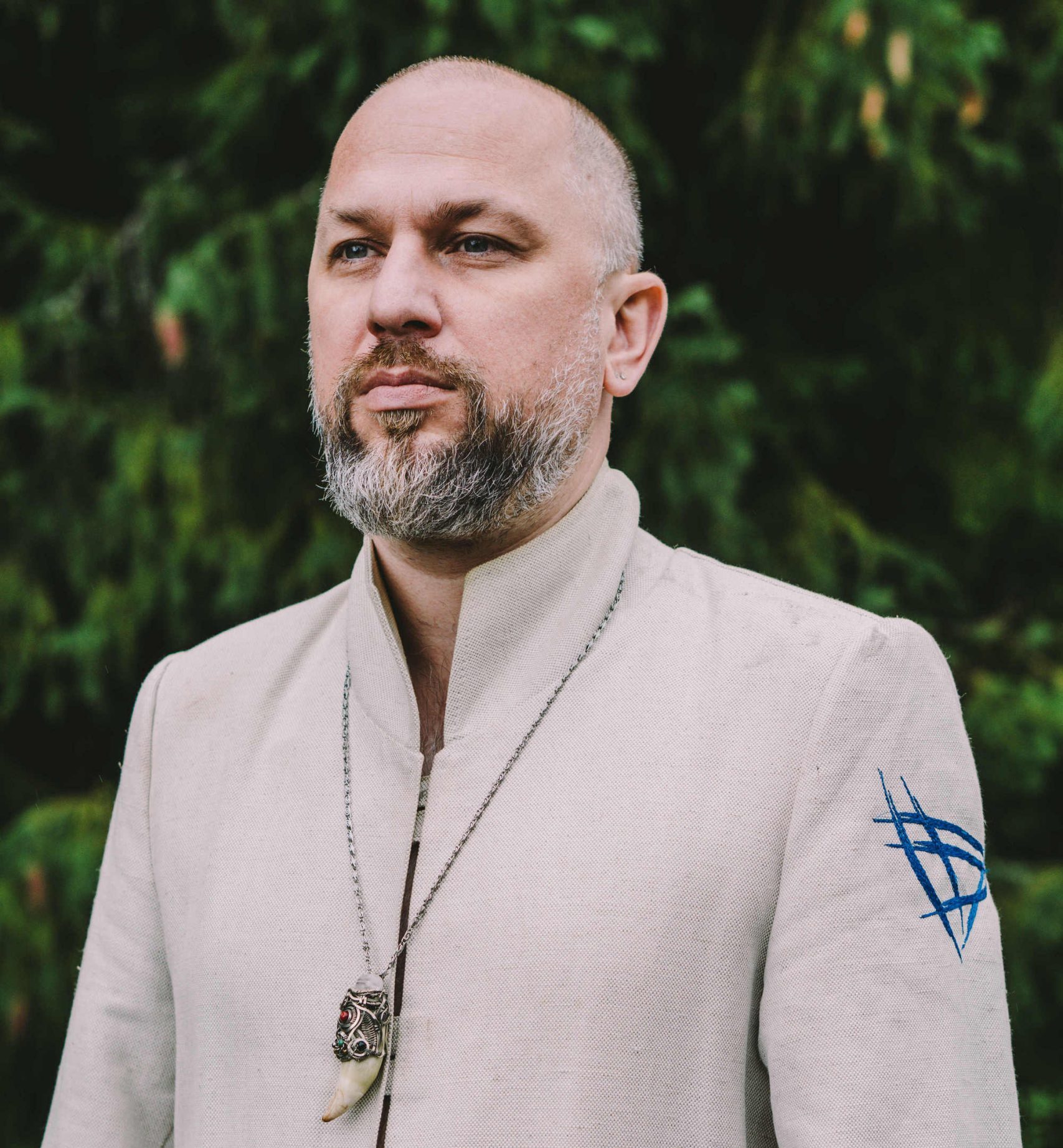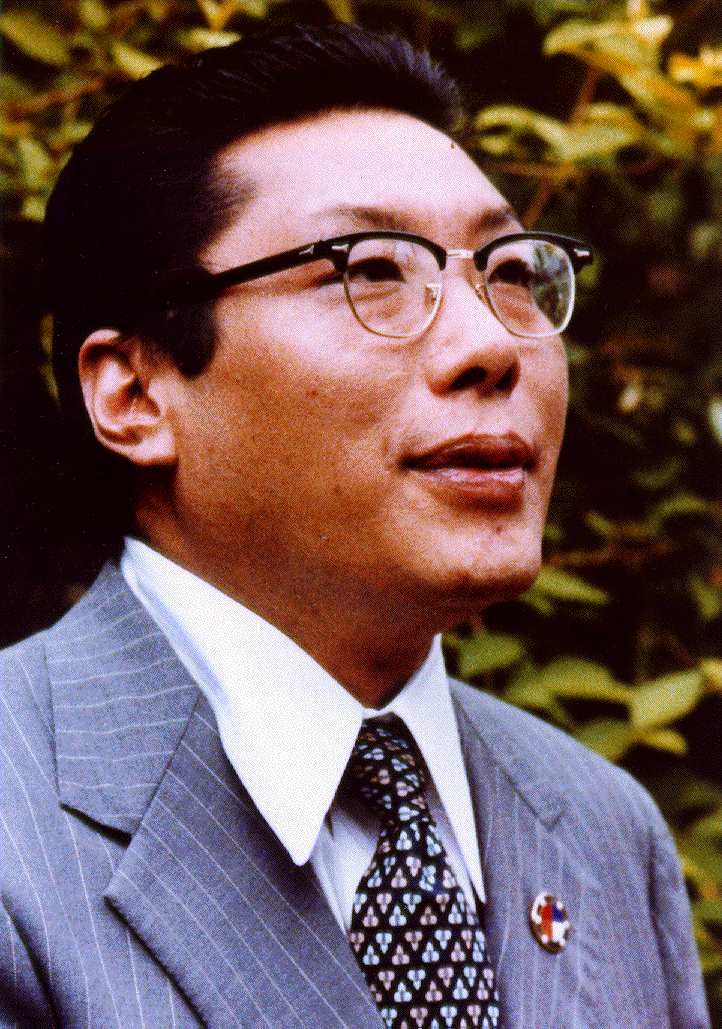And here’s, to my regret, the next proof of shallowness of the thought level of some Buddhist lamas, and it’s a pity that this is Chögyam Trungpa Rinpoche, the founder of “Shambhala: The Sacred Path of the Warrior” direction…
The Myth of Don Juan
AN INTERVIEW WITH CHOGYAM TRUNGPA by KARL RAY
Question: You refer to the Don Juan series of books by Castaneda as the “Myth of Don Juan.” Will you explain that?
Rinpoche: I think that in Castaneda’s books there is too much of a big deal made out of the “person.” It turns out to be more than is necessary. This usually seems to be true of any kind of cult. A personal cult develops in this way and, somehow, reality turns into myth. I’m not saying that Don Juan doesn’t exist at all. Maybe he does and maybe he doesn’t. Somehow the basis of the whole thing seems to be very simple, and elaboration would seem to be unnecessary. To my way of thinking, the approach is a sort of mixture of native wisdom and native superstition, which, when put together, makes the whole thing seem valid. The point is, who knows that perhaps, fundamentally, what we have here is very profound, may be very profound? But the way that Castaneda makes a big deal out of the whole thing makes the profundity not so fine. So, making a big deal out of something is the beginning of distorting the truth, so to speak. This is usually what happens, as has been seen in past instances. First there is wisdom which is very simple and clear on the folk level, in this case, the Mexican peasantry level. Then it is elaborated, put in books, in printed form, which in itself distorts it a little bit, takes away the feeling of the whole thing. Beyond that, there is reinterpretation of what’s been written in the book as well, which goes beyond what was actually said, what it’s supposed to be. So I think the whole thing is kind of rape of American wisdom.
Q: Native American wisdom?
R: Yes. Native American wisdom. (Laughs) Some people equate this to American tantra. I myself actually thought, at one time, that this might be a good beginning. But somehow, as more of the Don Juan books get published, there is a feeling that… a doubt as to the existence of American tantra.
Q: Do you find the teaching, overall, through the four books compatible with a person’s spiritual progress – his transformation?
R: In a sense the teaching is compatible, but on the other hand, you can make anything compatible spiritually. Like making a good cup of tea or whatever. Particularly in the first book we have a sort of “myth of the drug.” And then slowly that is toned down and sort of fades out. The whole thing becomes a more respectable mysticism, which is a very suspicious kind of switch. There are, you know, a lot of gaps. I think there are a lot of loose ends in the teachings, and these loose ends are made into mystical things. Rather than just simply loose ends, which is quite simple. In some sense they are made to sound more sophisticated than they actually are.
Q: Do you think people who have started on the spiritual path through drugs would not otherwise do so?
R: Well, I think it’s a kind of circular thing. Interesting. What usually happens is that a person decides: “Now, I’m going to let go, I’ve been holding tight, I’m going to bounce with society.” A highly evolved society, so to speak. People on drugs, LSD or marijuana or whatever, are a definite kind of people; they are people demonstrating they are going to let go. And if a person has reached such a generous state of letting go, it doesn’t particularly have to be drugs. It can be anything, meditation or whatever. But somehow, having an open mind, having taken drugs, and because one has an open mind, one begins to learn to interpret a lot of things beyond their level. Then the whole thing is attributed to the drug effect and not because of their openness. The whole thing sort of snowballs. A lot of people have come to the spiritual path without the drug experience. The effect of the drug does make a person think twice about reality and phenomenological experiences. At the same time, I think that is more of a connotation of taking drugs. I don’t particularly attribute it to drugs, so much as to a change in a person’s consciousness. Or for that matter, whether the drug experience has any relevancy at all. Usually, what happens to a person is that the drug just heightens their neurosis, which is a very fantastic thing for them to see, their own neurosis operating. But it just heightens. Then they eventually return to a manual way of approaching things. The effect of what people get out of the drug becomes at some point irrelevant to their really following the spiritual path. Drugs are just another fantasy.
Q: Do they skip steps in their development when they take drugs? And if so, do they have to come back again, or can they go on?
R: I think they have to go back, because the only thing the drug experience has done is simply to have started them, showed them how to begin. But the way they have to begin is to go back to pre-drug level of experience: their childhood, their relationship with their parents. So obviously one has to go back and start all over again.
Q: Do people become disappointed with drugs?
R: Yes, more and more. Particularly as they get older and begin to get more experience that begins happening. The whole point is, that in the general spiritual approach one has to work on the disappointments that exist in life, rather than on the glorifications. Glorifications have a lot of loose ends, which are not really real. You know, disappointments sort of bring you back home. You have to face yourself. That’s usually the pattern in any case.
Q: What is your opinion on Castaneda’s fainting spells? Is this usual when one comes into contact with these profound truths?
R: Well, I don’t think so. Of course, you can faint with meeting the samsaric world. You get a shock, obviously. (Laughter) I don’t think he fainted as often as is described in the book. I think a lot of them are [literary] fabrications.
Q: But one could faint?
R: You could faint if you are wholehearted enough. I mean, it’s lack of composure.
Q: Lack of composure. It is possible that a person not prepared, not having disciplined himself, would faint?
R: Sure. I think so. Fainting itself is a kind of shock. The kind you have jumping from a hot swimming pool into a cold swimming pool. There is a change, of being lost, change of environment, of losing ground. This obviously takes place. When some guy talks gibberish, half of which you can understand and half you can’t, there takes place, obviously, a sort of insecurity. What’s more, when someone who is highly Americanized and highly educated, working purely on a mental level, an intellectual level, meets with something very rugged, raw, and of an earthy quality, there is a lot of uncomfortableness; it might go beyond that, and he might faint.
Q: And fear? Does one usually fear a teacher or shaman? Do teachers try to instill it?
R: Well, not as a particular special trick to win the student over to the teacher. In a sense fear could provide some ground for a person, for a student, in order to relate more. The student’s snugness has to be changed. So in order to make him more alert, you might have a bucket of cold water above the door. As he opens the door, cold water.
Q: Sort of tension?
R: Yes. In the Buddhist tradition, how to learn, how to listen is to be, first of all, crisp, clear, a winter-morning type of attitude.
Q: As to the teachings themselves, reputed to be those of Don Juan’s, are they workable? Can you see a practical application for them?
R: One of the problems is that Don Juan’s teachings can be workable on the intellectual level. This is somewhat disappointing. The intellectual world doesn’t have to bend down to the Mexican peasantry level; it can be fed in such a way that it gets the best of the two worlds. But it only seems to be true, that without being a peasant, one can know the wisdom of the peasant, as printed in books, and at the same time still be comfortable. I do think what Don Juan has to say is, just sort of, good old-fashioned talk. To be interviewing some native elder who has a lot to say about life and can show us his world and how things operate, is in itself fine, on that level, if left as it is. But when it becomes myth and polished by organized training, anthropological research made out of it, then it becomes a problem. Definitely a problem. Even in Buddhism this has been felt. Especially the Tibetans have particularly felt this same problem. But somehow, fortunately, the people who brought the early messages of Tibetan Buddhism to this country were themselves old-fashioned. Somehow we were saved from that. Now, everybody is beginning to sit [meditate] instead of intellectualizing. If you have been intellectualizing, you must sit. But somehow with this [Castaneda’s books] there is no training involved. Just read the book, take marijuana, and everything is happy; you can intellectualize your luminous fibers all over the place and whatever. It’s very easy. Somehow the whole thing is too much of a packaged deal. There’s got to be something more than that. There’s no practical application. I don’t think this is the sort of magic that is being presented on the tantric level.
Q: Can this be dangerous?
R: You have the Latin American intelligent person working with his own natives. It is quite dangerous because there is familiarity, and at the same time, there is reeducation, change… beyond that native level, instead, on the professorial level. There is a lot of conflict between the two. I suppose you find you have a sensational book, but not a particularly insightful one, to say the least!
Q: Do you think things are just overstated?
R: Yes. Definitely.
Q: Do you see any relationship between the shamanistic teachings that Castaneda says he is reporting in his book and the shamanistic practices of Central Asia?
R: Well, I think there is, if you talk to someone like an old Bon shaman, if there is such a person, who has enough experience about himself, the environment. It is largely based on the environmental situation. I think there are a lot of links. Definitely. Not necessarily only one link. But maybe the same kind of idea, of working with the world, with nature, working with the environment, had spread around the world at the same time. But the interesting point is that, with true spirituality, the shamanistic tradition clearly demands that you must be a native yourself. Because your birth is important, your upbringing is important, the way your babyhood was handled is important. So you have some systems planted in your blood. I guess, in some sense, we can correlate this with Hinduism and Judaism, in some sense, in the original sense. The Taoist, Shintoist, and the grand traditions have the same kind of thing. A particular mountain or valley where you are living is very important for you because that is the place of your birth. And, also, there are local wisdoms existing amongst the trees, the rocks, and the brooks. Everything is impregnated with energy and power… magic. You know how to live if you are without connection with the world outside. You can still survive.
Q: Do these shamanistic teachings apply to the contemporary world where there is very little relationship to one’s place of birth? Most people’s place of birth is in a concrete city and not particularly related to nature. What does the teaching have to say to a contemporary city dweller?
R: Well, not very much. (Laughter) Not very much. That is why religions such as Christianity and Buddhism came about. They are not particularly related to nationalism. Christianity came out of Judaism and its shamanistic traditions, and Buddhism came out of Hinduism and its shamanistic traditions. Christ and Buddha both saw that those [traditions] were not going to work forever. In order to step beyond that, there is something more needed than that. So the first message that Buddha left was the four noble truths. The first thing is pain, alienation basically. It is a sort of antishamanistic kind of approach. You are not supposed to feel at home wherever you are. And whenever someone presents you with gefilte fish and matzo balls to see your world, to think that some other environment exists.
Q: Then Buddhism and Christianity are really in opposition to the shamanistic point of view?
R: Christianity is closest to Buddhism in this respect. It is a matter on one hand of seeing how far one can work with the environment and teach the doctrine of good citizenship purely from conventional truths which exist in a particular locality, a particular province, a particular district, as opposed to seeing how mendicants, who travel from one end of the world to the other, carry out their own thing. These are some of the differences. The evidence we have from Christianity, things like the examples of the desert fathers, who actually dwelled in a completely alien situation and in inhospitable surroundings, is similar to that of the mendicant tradition of the Buddhist monks, who have shaved heads and whose temple is to step into the nearest railroad station, just leave and travel around. It is an entirely different kind of approach.


